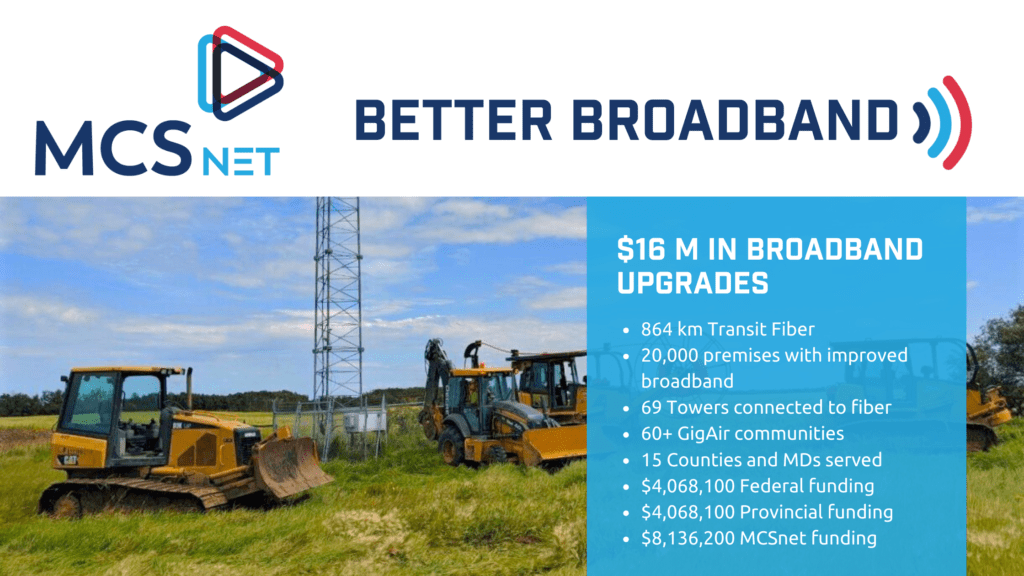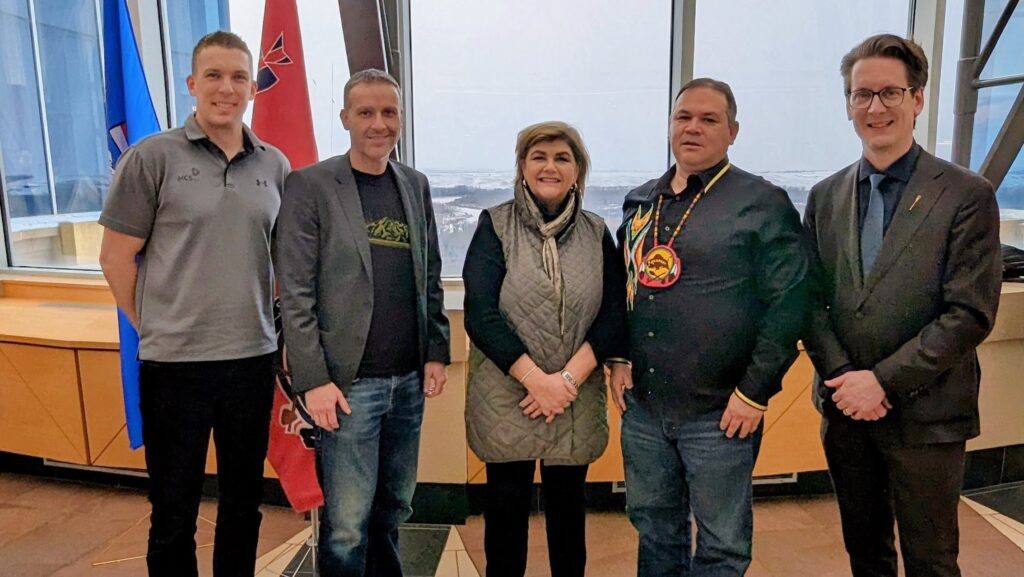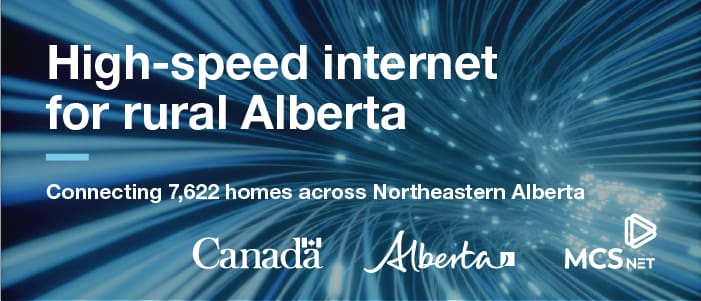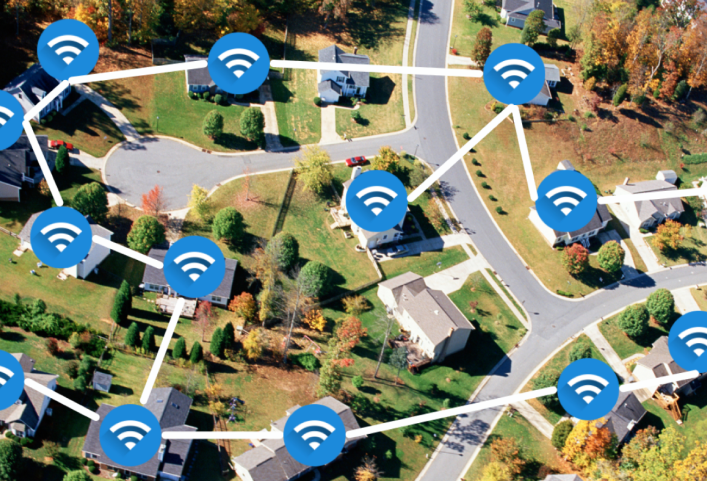
MCSnet is closing the digital divide with assistance from the Federal and Provincial governments. Through its successful application to the Universal Broadband Fund (UBF), MCSnet is enhancing rural broadband across its service area.
“By building transit fiber to our network of fixed wireless towers, we are able to provide high speed internet to our rural customers that is on par or better than large, urban areas. And with new wireless technologies, such as GigAir, we are able to reach more rural customers to provide gigabit speeds.”
Jerico VanBrabant, CEO
MCSnet attended the official grants announcement on Tuesday, March 5, 2024 at Siksika Nation where a total of 14 projects were announced partnering with 12 different internet service providers.
MCSnet applied to the UBF in 2021 with the goal of improving speeds to its customers in Northeastern Alberta. The Federal government contributed $4,068,100 in UBF funding and the Alberta government matched the federal contribution with $4,068,100 through its Alberta Broadband Fund. The grant funding makes up 50 per cent of the project costs — MCSnet also invested $8,136,200 of its own funds towards the project.

(L-R): MCSnet’s Jason Sundt, CFO, and Jerico VanBrabant, CEO, join the Honourable Gudie Hutchings, Canada’s Minister of Rural Economic Development, Ouray Crowfoot, Chief of Siksika Nation, and the Honourable Nate Glubish, Alberta’s Minister of Technology and Innovation, at the broadband announcement at Siksika Nation on March 5, 2024.
The UBF provides funding to improve internet speeds for rural and remote communities to meet internet speeds of 50/10 Mbps. Since the majority of MCSnet’s customers are in rural and remote communities, the local, St. Paul-based company was successful in receiving this grant, announced on March 5, 2024.
This is the fourth successful grant application that MCSnet has received to improve broadband. To date, MCSnet has received over $22 M in grant funding and has invested $22 M of its own funds as part of these grant programs to improve internet speeds for over 35,000 homes and businesses in Northeastern Alberta.

864 km of Transit Fiber
With the assistance of grant funding and its own investments, MCSnet’s main focus since 2015 has been to build a transit fiber backbone to support its network of over 500 fixed wireless towers.
To date, MCSnet has built over 2,000 km of transit fiber to connect 167 of its towers. Other towers within close proximity also receive the advantage of getting an extra speed boost via a wireless backhaul link.
69 Towers Connected to Fiber Optics
Fiber-optic technology harnesses the power of light. Pulses of light transmit data through thin, transparent fibers of glass. It is the backbone of telecommunications. Fiber optics also allows for the transmission of signals over a long distance without any degradation. By interconnecting its fixed wireless towers to a fiber optic network, MCSnet is taking the high-speed capacity of this technology and spreading it wirelessly to serve rural and remote households and businesses.
An additional 69 towers are connected to fiber as part of this project for a total of 176 fiber-fed towers. These towers act as a backbone for MCSnet’s network of over 500 towers by interconnected to one another and providing reliable and strong internet signals to homes and businesses throughout the service area.
Over 60 GigAir Communities
One truly innovative way MCSnet has taken the speed of light and used it wirelessly is in its 60 GHz application, also known as GigAir. With over 3,400 MCSnet customers being serviced by GigAir to date, MCSnet has the largest application of 60 GHz technology in the world (to our knowledge).
The success and growth of MCSnet’s GigAir has proven that it can match the speeds and reliability of Fiber to the Premise (FTTP) services.
15 Counties and MDs Served
MCSnet thanks the municipalities in our service area who provided their letters of support during the grant application process. Because of this grant funding and MCSnet’s own investment, approximately 20,000 homes and businesses in Northeastern Alberta will receive better broadband.
Municipalities receiving Transit Fiber builds for the March 5 grant announcement include:
Athabasca County
Beaver County
County of Minburn
Lac La Biche County
MD of Bonnyville
Westlock County
MD of Wainwright
County of Vermilion River
Two Hills County
Camrose County
County of St. Paul
Lac Ste. Anne County
Leduc County
Lamont County
Strathcona County
To see more about the other projects announced for Alberta, see the Alberta government news release.




